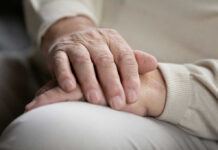
Women are freezing their eggs not primarily for career advancement, but because they haven’t found the right partner—challenging common assumptions about delayed motherhood in modern society.
At a Glance
- Studies show that the majority of women who freeze their eggs are single women in their thirties, with 82% citing partnership issues as their primary motivation
- A growing “mating gap”—more college-educated women than suitable male partners—creates challenges for women seeking compatible life partners
- Social egg freezing (SEF) enables women to separate their search for a partner from the pressure of declining fertility and immediate parenthood
- The decision to freeze eggs reflects a complex interplay of personal desires, societal factors, and the value many women place on having a genetic connection to their future children
Beyond Career Ambitions: The Real Reasons Women Freeze Their Eggs
Contrary to popular belief, career advancement plays only a moderate role in women’s decisions to freeze their eggs. Research from German-speaking countries reveals that Social Egg Freezing (SEF) users are typically single, well-educated women who highly value genetic motherhood. These women pursue egg freezing primarily to gain time for conventional parenthood, particularly to find the right partner while preserving their fertility options. The procedure, technically known as oocyte vitrification, became widely available in the early 2000s initially for medical reasons before expanding to non-medical uses in 2012.
The timing of this decision often coincides with women approaching what researchers call the “fertility cliff” at age 37, when reproductive capacity begins to decline more rapidly. This biological reality creates pressure for women who are still searching for suitable partners, leading many to view egg freezing as an “insurance policy” against future infertility while they continue their search for the right relationship.
The “Mating Gap” and Its Implications
A significant factor driving egg freezing decisions is what researchers term the “mating gap”—a demographic reality where college-educated women outnumber college-educated men, creating a shortage of what many women consider suitable partners. This educational imbalance contributes to the challenges women face in finding partners who share similar values, life goals, and timelines for family formation. The phenomenon explains why highly accomplished women often remain single despite their desire for partnership and parenthood.
— Zvi Mowshowitz (@TheZvi) December 2, 2024
This demographic challenge means that many women find themselves single in their thirties not by choice, but because of circumstances beyond their control. For these women, egg freezing offers a way to maintain reproductive autonomy while continuing to seek meaningful partnership without the pressure of rapidly declining fertility.
Emotional Motivations and Psychological Outcomes
Women who choose to freeze their eggs frequently express feelings of “running out of time” and fear of future regret. The decision is deeply emotional, reflecting not just practical concerns about fertility but also hopes, fears, and values related to family formation. Research indicates that positive psychological outcomes are associated with using SEF to actively shape life and family planning, giving women a sense of agency in the face of biological constraints.
The procedure itself is described as complex, physically taxing, financially demanding, and emotionally draining. Yet many women find value in taking this step despite the uncertainties of outcome. The process allows women to temporarily separate their search for a partner from the urgency of biological childbearing timelines, potentially creating healthier relationship dynamics free from reproductive pressure.
Redefining Motherhood Preparation
The increasing popularity of social egg freezing reflects broader shifts in how women approach motherhood preparation. Rather than rushing into partnerships or parenthood due to biological pressure, more women are prioritizing finding the right relationship foundation first. This approach values quality partnerships and comprehensive preparation for parenting, including emotional, financial, and relationship readiness—not just biological capability.
As social egg freezing continues to gain acceptance, it’s reshaping conversations around reproductive autonomy, family formation timelines, and what it means to be prepared for motherhood in contemporary society. The practice demonstrates how women are actively responding to the complex intersection of biological realities, relationship challenges, and personal aspirations in their journey toward potential parenthood.


















